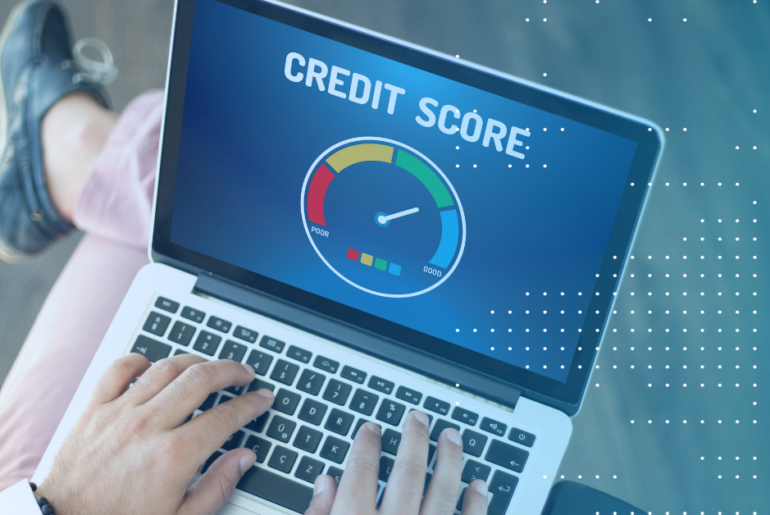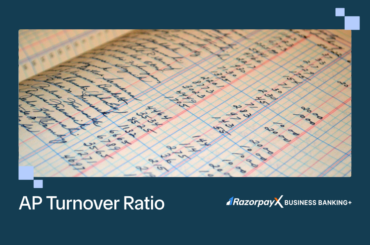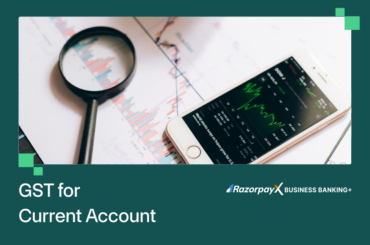Have you ever heard of the CICs? CICs or Credit Information Companies typically assign credit scores to individual and commercial entities. Most of you will know CIC by its alternate and more popular name – Credit Bureau.
Imagine you want to take a loan and approach a bank for it. The lending bank checks your credit score, which is formulated based on your previous loan payback details like the regularity of payments, and more.
The same rule applies to a business.
Table of Contents
What is a Credit Score?
A credit score is a numerical expression based on a statistical analysis of a person‘s credit files, to represent the creditworthiness of an individual.
It is used by lenders to determine the likelihood that an individual will repay a loan on time. Credit scores range from 300 to 900, with higher scores indicating a better credit history.
What is Credit Score Range and What Does it Mean?
Credit scores typically range from 300 to 900. A higher score indicates a better credit history and a lower score indicates a weaker one.
➡️A score of 350–549 is considered very poor and means you are considered high risk for lenders.
➡️A score of 550–649 is considered fair and means you may be able to qualify for some loans, but you may have to pay higher interest rates.
➡️A score of 650–749 is considered good and means you are likely to qualify for most loans and credit cards with a lower interest rate.
➡️A score of 750-900 is considered very good and means you are likely to qualify for most loans and credit cards with a lower interest rate.
How to Check Credit Score?
You can check your credit score in by signing up for a free credit report from either of the two major credit reporting bureaus in India, CIBIL and Equifax.
To sign up, you will need to provide personal information such as your name, date of birth, address, and PAN number. Once you have signed up, you will be able to view your credit score, along with other details such as your credit history and any outstanding debts.
Also read: Hard Credit Score Check Vs. Soft Credit Score Check: What They Are and Why They Matter?
What are the types of Credit Scores?
1. Experian
Experian is one of the popular CICs of India that is recognised by the Securities and Exchange Board of India. Apart from having a global reputation, Experian is a leader in various information services.
➡️It provides data and detailed analysis to clients/banks in the form of business credit scores, helping them in their decision-making process.
➡️Along with business credit scores, Experian also offers powerful business tools like Market Switch and Powercurve Origination to help them analyse the score even further.
➡️Experian has built a solid reputation in business credit scoring. The reputation comes from 125 years of experience in collecting, analysing, processing, and deploying data to companies to provide financial control and access to financial services.
Experian is ranked as one of the most innovative credit-scoring companies in the world by Forbes Magazine.
Experian’s activities are regulated by the Credit Information Companies
2. CIBIL
CIBIL (Credit Information Bureau India Limited) or TransUnion CIBIL is part of the American multinational group, TransUnion. It is India’s first credit bureau and also the most well-known one.
All major banks, housing finance companies, financial institutions, and NBFCs are members of CIBIL. It collects and maintains data from more than 32 million business entities. The Credit Information Report and CIBIL business credit score are generated based on credit information collected by three divisions – Commercial Bureau, Micro Finance Institution Bureau, and Consumer Bureau for commercial enterprises.
As part of the business credit score, CIBIL provides a CIBIL rank and CIBIL company report for organisations. CIBIL ranks vary between 1 and 10, where 1 is the best rank that a business can achieve.
Advantages and Disadvantages of Experian & CIBIL
Both CIBIL and Experian have their own plus points. However, in India, the CIBIL business credit score has the edge over the Experian one because nearly 90% of Indian banks and financial institutions have tied with CIBIL.
Let’s have a closer look at the advantages and disadvantages of Experian and CIBIL.
-
Experian
|
Advantages |
Disadvantages |
|
Experian provides businesses with a comprehensive range of services and products, from credit reports to fraud prevention. This allows businesses to better assess potential customers and reduce the risk of fraud. |
Experian’s services can be expensive, and businesses may need to pay a monthly fee. |
|
Experian’s credit monitoring services can alert businesses and consumers to changes in their credit reports, which can help stop identity theft and financial loss. |
Experian’s credit reports are not always accurate, and incorrect information can appear on them. |
|
Experian offers a variety of credit score calculators, which can help businesses and consumers determine their creditworthiness. |
Experian may not be able to provide protection against all types of fraud, such as identity theft. |
|
Experian’s customer service team is available to answer questions and help consumers understand their credit scores and reports. |
Experian’s services are only available in certain countries, so businesses and consumers in other parts of the world may not be able to use them. |
-
CIBIL
|
Advantages |
Disadvantages |
|
CIBIL provides detailed credit reports that are the basis of all loan and credit applications. |
CIBIL does not provide access to all the information lenders need to make a proper assessment. |
|
CIBIL helps lenders to assess the creditworthiness of a potential customer. |
CIBIL scores may be inaccurate and misleading. |
|
CIBIL helps individuals to track their credit score and understand the factors that affect it. |
CIBIL reports can take a long time to be updated and they may not reflect recent changes in an individual’s financial and credit situation. |
|
CIBIL also helps in identifying potential fraudulent activities. |
CIBIL is not updated regularly and the scores may be outdated. |
|
CIBIL helps lenders and financial institutions to make informed decisions about loan approvals. |
CIBIL scores are based on a number of factors, including payment history, credit utilization, and credit age, which may not be accurate. |
What are the Factors that are Considered for Calculating Credit Score?
1. Payment History: This is the most important factor in determining your credit score. It accounts for 35% of your overall score and is based on your track record of making payments on time.
2. Credit Utilisation: This is the amount of credit you are using compared to the amount of credit available to you. This accounts for 30% of your credit score and it’s important to keep your credit utilisation ratio below 30%.
3. Length of Credit History: This is the average age of your credit accounts. The longer you have had credit accounts open, the better your score will be. This accounts for 15% of your credit score.
4. Credit Mix: This is the variety of credit accounts you have. Having a good mix of credit, such as a mortgage, auto loan, and credit card can help your score. This accounts for 10% of your credit score.
5. New Credit: This is the number of recently opened accounts. Too many new accounts in a short period of time can hurt your score. This accounts for 10% of your credit score.
How is Credit Score Calculated?
Credit scores are calculated using a complicated algorithm that takes into account a variety of factors. These factors include payment history, the amount owed, length of credit history, new credit, types of credit used, and any public records. Generally, the higher your score, the better your credit looks to potential lenders.
➡️Payment history accounts for 35% of a credit score
➡️the amount owed accounts for 30%
➡️length of credit history accounts for 15% new credit accounts for 10%
➡️types of credit used account for 10%,
➡️and any public records account for 10%.
Why is it Important to Maintain a Good Credit Score?
Having a good credit score is important because it can affect many aspects of your financial life.
➡️A good credit score can help you get approved for credit cards, loans, and other financing.
➡️It can also help you get lower interest rates and better terms on those loans.
➡️Additionally, a good credit score can help you secure lower insurance premiums, as some insurance companies use credit scores to determine how much to charge you.
➡️Having a good credit score can also help you when applying for a job. Some employers may consider your credit score when making decisions about hiring.
How can Credit Scores be Improved?
Let’s have a look at the way a credit score can be improved.
1. Pay bills on time: Make sure to always pay your bills on time and in full. Payment history is the most important factor in calculating your credit score.
2. Reduce credit utilisation: Try to keep your credit utilisation ratio as low as possible. This is the amount of debt you’re carrying compared to your available credit.
3. Dispute errors: Check your credit report and dispute any errors you find. This can help improve your score.
4. Monitor your credit score: Track your credit score consistently to monitor your progress. Keeping an eye on your score gives you a better idea of how your credit habits are affecting your score.
5. Limit new credit applications: Don‘t open too many new credit accounts at once. Each application results in a credit inquiry, and too many inquiries can lower your credit score.
6. Use a secured credit card: A secured credit card is an option for people with poor credit. It requires a cash deposit and helps build credit by reporting your activity to the credit bureaus.
7. Ask for a higher credit limit: Ask your credit card company to increase your credit limit. This can help improve your credit utilisation ratio and result
Difference between Credit Report and Credit Score
Let’s have a closer look at the differences between a credit report and a credit score.
|
Credit Report |
Credit Score |
|
A credit report is a detailed report of an individual’s credit history that includes information about their current credit accounts, loans, payment history, and other financial activities. |
A credit score is a numerical representation of an individual’s creditworthiness, based on the credit report. |
|
It is considered a credit reference |
It can help measure credit risk |
|
It shows details like the amount of the loan, payment history etc |
It only shows your creditworthiness |
|
It is provided by a credit bureau such as Equifax, Experian, or TransUnion. |
It is usually calculated by a credit reporting agency using a specific formula. |
Importance of Credit Reports for Companies and Businesses
➡️Credit reports provide businesses with valuable insights into the creditworthiness of potential customers, suppliers, and partners.
➡️Having access to this information can help protect a business from financial risk and ensure that it makes sound credit decisions.
➡️Companies can use credit reports to assess the financial stability of customers and suppliers, anticipate potential payment problems, and improve their cash flow.
➡️They can also use credit reports to verify customer information, monitor accounts for fraud, verify vendors, and determine if a customer is a good fit for specific products or services.
➡️Finally, credit reports can help businesses better understand the credit history of their customers, allowing them to tailor their credit terms and offers accordingly.
Both Experian and CIBIL credit scores play a vital role in a business to avail loans for its expansion. They are the two best credit information companies in India, and a majority of the organisations in India are tied to either one of these bureaus.
Did you know?
Razorpay Capital offers collateral-free loans via Line of Credit based on your personal transaction history. We don’t stress credit scores as much as conventional lenders because we hope to achieve similar confidence in businesses through the quantity and quality of customer payments and payouts.





